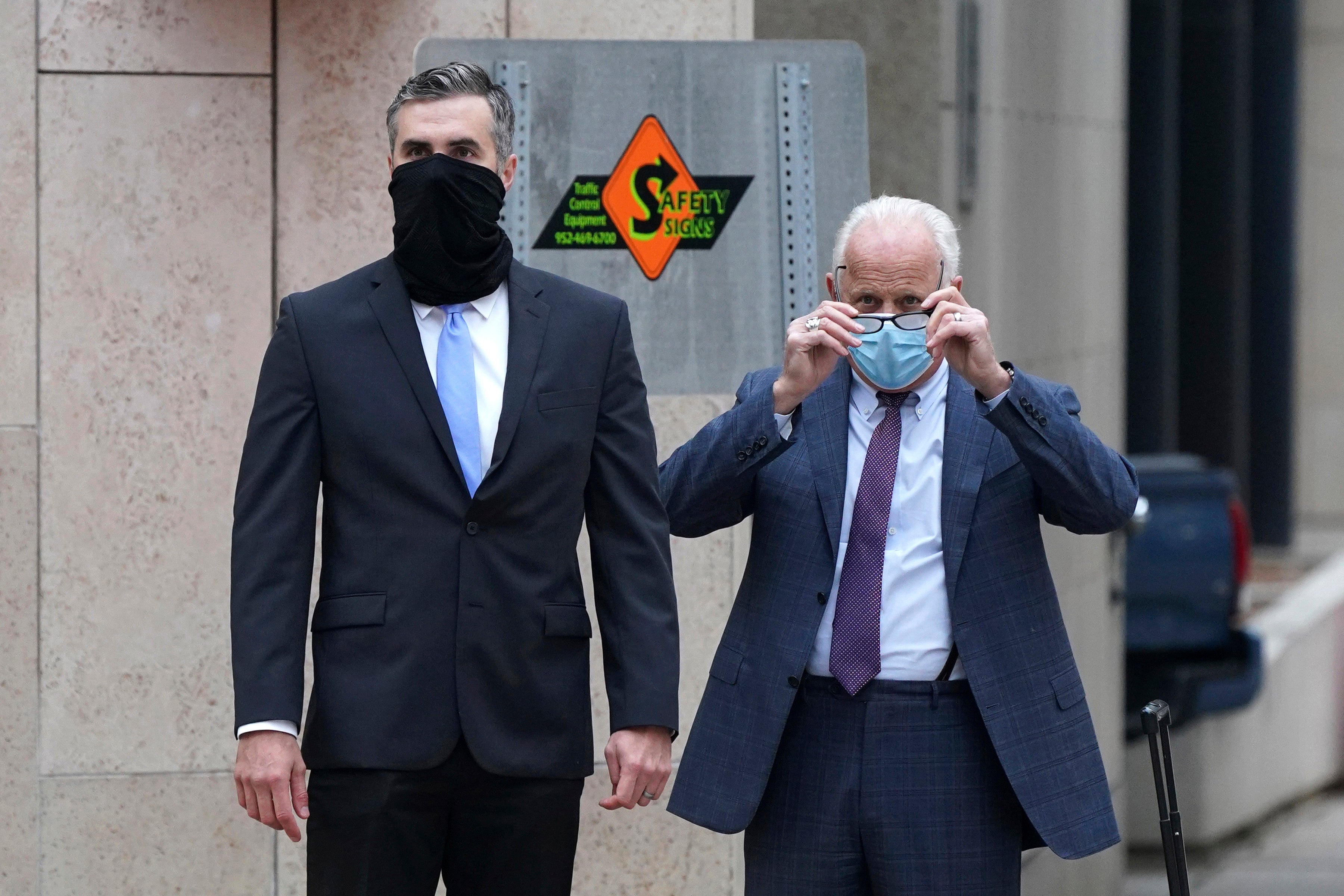EXPLAINER: Not unusual for ex-cop to report later for prison
The federal judge who sentenced Thomas Lane to 2 1/2 years in prison on a civil rights charge in the killing of George Floyd says the former Minneapolis police officer won’t have to surrender until after his sentencing in a separate case in two months

Your support helps us to tell the story
From reproductive rights to climate change to Big Tech, The Independent is on the ground when the story is developing. Whether it's investigating the financials of Elon Musk's pro-Trump PAC or producing our latest documentary, 'The A Word', which shines a light on the American women fighting for reproductive rights, we know how important it is to parse out the facts from the messaging.
At such a critical moment in US history, we need reporters on the ground. Your donation allows us to keep sending journalists to speak to both sides of the story.
The Independent is trusted by Americans across the entire political spectrum. And unlike many other quality news outlets, we choose not to lock Americans out of our reporting and analysis with paywalls. We believe quality journalism should be available to everyone, paid for by those who can afford it.
Your support makes all the difference.The federal judge who sentenced Thomas Lane to 2 1/2 years in prison Thursday on a civil rights conviction in George Floyd's killing said the former Minneapolis police officer won’t have to surrender until after his sentencing in a separate state case in two months.
And legal experts said that's not unusual, even in a case as emotionally charged as Floyd's death under the knee of former Officer Derek Chauvin on May 25, 2020, which sparked protests in Minneapolis and around the world in a reckoning over racial injustice and policing. Even the federal prosecutors who handled Lane's case have said he was the least culpable of the four officers involved in Floyd's death.
U.S. District Judge Paul Magnuson ordered Lane to turn himself in Oct. 4, two weeks after he is sentenced in state court, where he pleaded guilty in May to aiding and abetting manslaughter.
Chauvin, the most senior officer at the scene, was sentenced two weeks ago to 21 years on his federal civil rights conviction, concurrent with his earlier 22 1/2-year sentence for his state conviction for second-degree murder. He’s been held in solitary confinement in the state’s maximum security prison at Oak Park Heights for his own safety since a jury found him guilty of murder last year, and will eventually be transferred to federal prison.
Several legal experts said it's not unusual that a federal judge would give a lesser defendant like Lane time to surrender, particularly when they're not considered a flight risk or a danger to the public. Most defendants who go through the federal system aren't considered or treated as violent offenders. Unless they're considered a risk, they usually remain free until they have to report to prison.
Former U.S. Attorney Thomas Heffelfinger said federal judges “more often than not” allow defendants to report only after the Bureau of Prisons has decided where they will serve.
Mark Osler, a professor at the University of St. Thomas School of Law and former federal prosecutor, said Lane was the most likely of the four officers to be allowed to report to prison later.
“He was charged differently, with a less serious crime, the failure to render medical aid," Osler said. “And a judge is likely to take that into account.”
Magnuson probably has made similar decisions many times before, Osler said, especially when the sentences are short.
It's a misnomer to say that Floyd's death wasn't a violent offense, but the specific charge that Lane was convicted of — depriving Floyd of his right to medical care — is legally more comparable to a white collar crime, said Mike Brandt, a local defense attorney who has been following the case.
While a lot of people might be unhappy with Lane's sentence, Brandt said, the actual offense was "more of an act of omission than doing something affirmatively.” And he added that Magnuson — Minnesota's longest-serving federal judge — has been around long enough that he wasn't going to be swayed by the high emotions surrounding the case.
Magnuson recommended that Lane, who held Floyd’s feet but also expressed concern for his condition, should serve his sentence at the federal prison camp in Duluth, a minimum-security facility about 2 1/2 hours north of Minneapolis, which houses mostly nonviolent white collar offenders. The facility has no fence and has dormitory-style housing rather than cells.
But it’ll be up to the federal Bureau of Prisons to decide where Lane should do his time.
___
Find AP’s full coverage of the killing of George Floyd at: https://apnews.com/hub/death-of-george-floyd